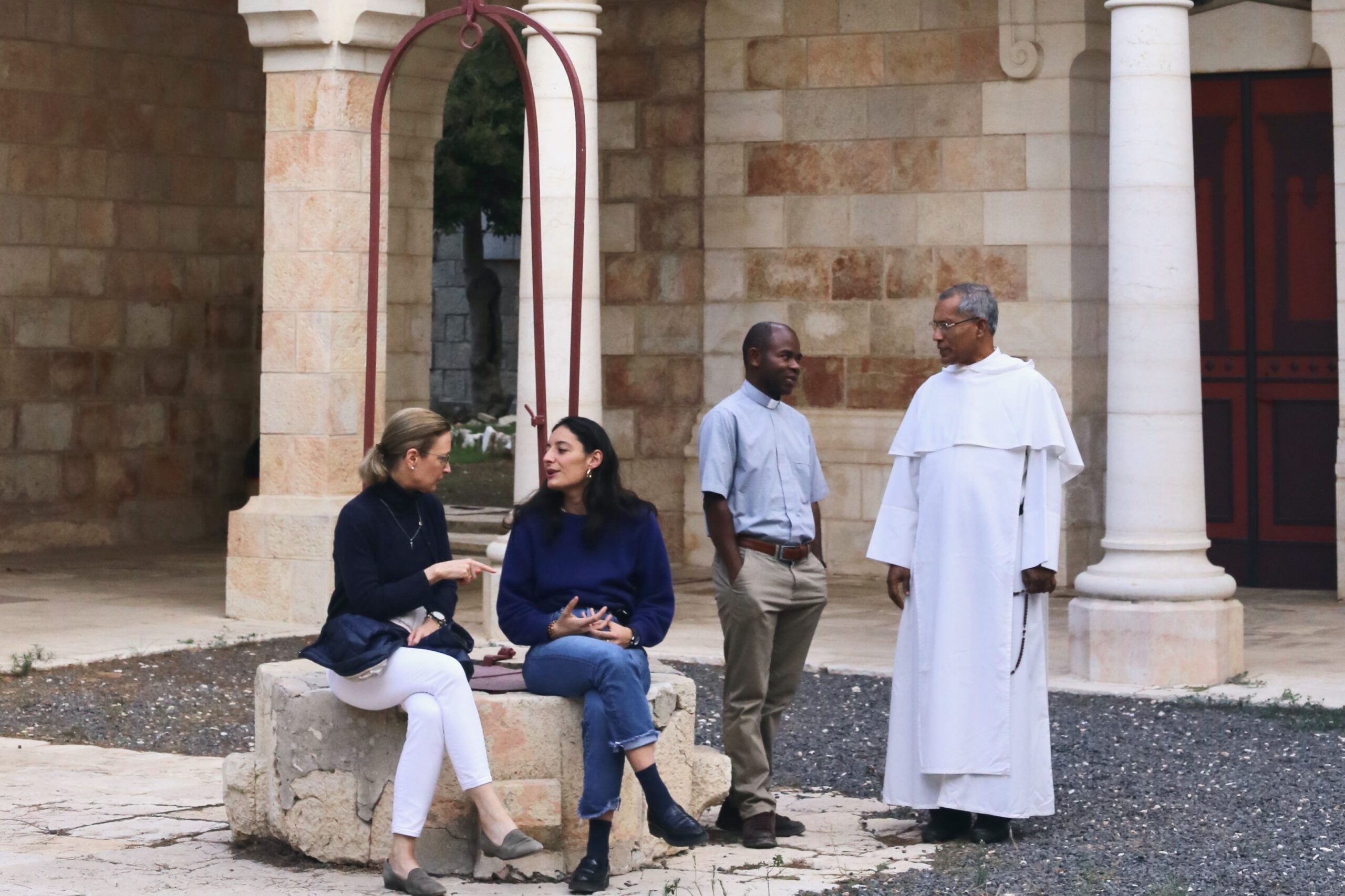Dr Nina Heereman, Beatriz de Isasi, Father Otabela and Dominic Mendonca, OP, (from left to right) have experienced the shock of war from Ébaf.
Why have you been at Ébaf since the beginning of October?
Nina: I am a former student of the School, where I defended my thesis in 2017 on the Song of Songs. After five years teaching at St Patrick’s Seminary in San Francisco, I am back at Ébaf on sabbatical, which I am devoting to writing a commentary on the books of Ruth and Esther for the Catholic Commentary on Sacred Scriptures series.
Beatriz: After three years studying Classics at the ENS, I wanted to practice Latin in a practical way. I’m taking part in the research programme of La Bible en Ses Traditions, which is preparing to offer a new translation of the Bible in the form of an application, Bibleart.com.
Father Otabela: This stay is like an intellectual and spiritual “retreat”. I’m here to prepare for the publication of my thesis on the book of Exodus, which I will defend in 2022 at the KU Leuven, and to write a few articles on biblical exegesis, taking advantage of the Ébaf’s rich library.
Fr. Dominic: I have been a teacher at Ébaf since 2014. This year I am teaching a course on the Gospels of John and Mark. I come from the province of India, so part of my apostolate as a priest is with the Indian Christian community in the Holy Land.
How did you feel after the events of 7 October?
Nina: It took me a few days to realise. When I saw the Palestinians who work here worried, I began to understand.
Beatriz: I was stunned at the time, unable to imagine what would happen next. I was seized with horror at the sight of the images, and overwhelmed with sadness at the ugliness of the evil.
Fr. Dominic: Two days after my return to Jerusalem, war broke out. The growing number of massacres of innocent people aroused in me anger, then in compassion, and finally in a prayer that the war would not turn into a global conflict.
How did the war impact on your daily life at Ébaf?
Father Otabela: I consult the news a bit more to understand the situation. Fortunately, we can pray fervently here in the Holy Land to ask for peace. Initially, those close to me suggested I go back. I think they’ve realised that we’re not under the bombs in Jerusalem. In fact, at Ebaf, we feel confident. The friars who have been here for a long time help us to put the situation into context. Everyone – volunteers, students, researchers, teachers – is determined to be part of a family. Perhaps the current context is uniting us a little more. I really appreciate the simplicity of the relationships, which gives you a genuine feel for the people involved in the research that takes place here.
Beatriz: I am not afraid for myself. I feel we are going through an historic transition. Hope is being tested. I see this war as a spiritual experience that requires us to cultivate prayer and believe in its power. Finally, the life of a pilgrim takes another, an inner turn.
Fr. Dominic: Terrified by the situation, the congregation of the Indian community in Tel Aviv for whom I have celebrated Mass six times since 7 October has grown. All these people work for Jewish families. My role as a preacher was to remind them that we are not here to take sides, but to pray for peace and security for everyone.
Nina: We don’t go out in the evenings any more, which gives us more time to pray. Every evening, the rosary with the friars is very beautiful. Praying for a war all around us brings the Gospel alive. We focus on what is essential: preserving the peace of our hearts so that they remain a channel for transmitting the peace that the Risen Christ communicated 2,000 years ago in the Cenacle, 1 km from here.
